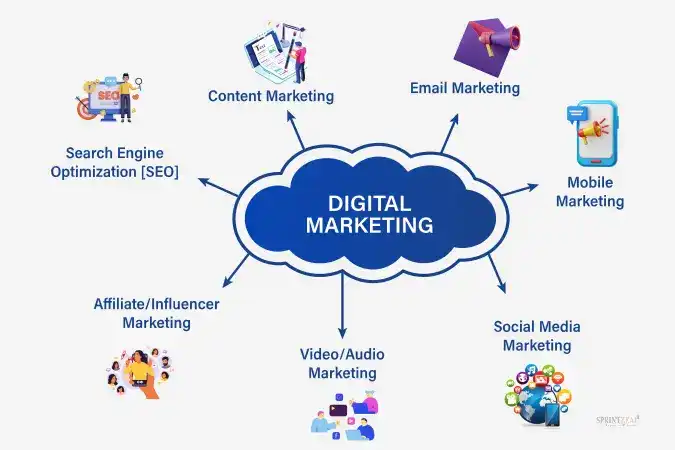Maximize Your Wealth: Essential Investment Tips for Beginners
Mia Anderson

Photo: Maximize Your Wealth: Essential Investment Tips for Beginners
Investing can seem like a daunting task, especially if you’re just starting out. With so much information out there, it’s easy to feel overwhelmed by the choices and the potential risks. However, the earlier you start, the more time your investments have to grow, and the better prepared you’ll be for your financial future. Whether your goal is to build wealth, save for retirement, or simply secure a financial safety net, understanding the basics of investing is crucial. This guide will walk you through some essential investment strategies for beginners, helping you make informed decisions and maximize your wealth over time.
Why Investing Matters for Your Financial Future
Before diving into specific investment strategies, it’s important to understand why investing is so vital. Simply put, investing allows your money to grow. When you keep your money in a traditional savings account, it earns minimal interest, often below the rate of inflation. This means that over time, your money actually loses value. Investing, on the other hand, offers the potential for higher returns, helping you stay ahead of inflation and build wealth.
Compounding: The Magic of Growing Wealth Over Time
One of the key reasons to start investing early is the power of compounding. Compounding occurs when the returns on your investments start generating their own returns. For example, if you invest $1,000 at a 5% annual return, after one year, you’ll have $1,050. In the second year, you’ll earn 5% on $1,050, not just the original $1,000. Over time, this compounding effect can lead to significant growth, making your money work harder for you.
Diversification: Reducing Risk While Maximizing Returns
Diversification is another critical concept in investing. By spreading your investments across different asset classes—such as stocks, bonds, and real estate—you can reduce your risk. If one investment performs poorly, others may perform well, balancing out your overall returns. Diversification doesn’t eliminate risk entirely, but it does make your investment portfolio more resilient to market fluctuations.
Getting Started: How to Begin Investing as a Beginner
Now that you understand the importance of investing, the next step is to learn how to start. As a beginner, it’s essential to take a thoughtful and measured approach.
Setting Financial Goals: What Do You Want to Achieve?
Before you invest a single dollar, it’s important to define your financial goals. Are you investing for retirement? A down payment on a house? Your children’s education? Your goals will determine your investment strategy. For example, if you’re investing for a short-term goal, you might want to choose safer investments like bonds. If you’re investing for the long term, you can afford to take on more risk with stocks or real estate.
Understanding Your Risk Tolerance
Risk tolerance refers to how comfortable you are with the possibility of losing money in your investments. Some people are more risk-averse, preferring to avoid potential losses, while others are willing to take on more risk for the chance of higher returns. Your risk tolerance will influence the types of investments you choose. If you’re risk-averse, you might prefer bonds or dividend-paying stocks. If you’re willing to take on more risk, you might consider growth stocks or real estate investments.
Building an Emergency Fund Before Investing
Before you start investing, it’s crucial to have an emergency fund in place. An emergency fund is a savings account with enough money to cover 3-6 months’ worth of living expenses. This fund acts as a financial safety net, ensuring that you won’t have to sell your investments at a loss if you face unexpected expenses. Having an emergency fund allows you to invest with more confidence, knowing that you’re financially secure.
Choosing the Right Investment Strategy for Beginners
Once you’ve set your financial goals and assessed your risk tolerance, it’s time to choose your investment strategy. Here are some of the best investment strategies for beginners.
Dollar-Cost Averaging: A Steady Approach to Building Wealth
Dollar-cost averaging is a simple yet effective investment strategy that involves investing a fixed amount of money at regular intervals, regardless of market conditions. This approach reduces the impact of market volatility because you’re buying more shares when prices are low and fewer shares when prices are high. Over time, this can lead to a lower average cost per share and steady growth in your investments.
Real-Life Example of Dollar-Cost Averaging
Imagine you invest $100 every month in a mutual fund. In January, the fund’s price is $10 per share, so you buy 10 shares. In February, the price drops to $8 per share, so you buy 12.5 shares. In March, the price rises to $12 per share, so you buy 8.33 shares. By the end of three months, you’ve invested $300 and own 30.83 shares. The average cost per share is $9.73, which is lower than the market price in March. This strategy helps you avoid trying to time the market, which can be risky and stressful.
Index Fund Investing: Low-Cost Exposure to the Market
Index funds are mutual funds or exchange-traded funds (ETFs) that track a specific market index, such as the S&P 500. These funds offer broad exposure to the stock market at a low cost, making them an excellent option for beginners. Because index funds are passively managed, they typically have lower fees than actively managed funds. Additionally, index funds are diversified by nature, spreading your investment across hundreds of companies, which reduces risk.
Why Index Funds Are a Smart Choice for Beginners
Investing in individual stocks can be tempting, but it requires extensive research and a deep understanding of the market. Index funds, on the other hand, provide a simple way to invest in the overall market without the need for constant monitoring. By investing in an index fund, you’re essentially betting on the long-term growth of the economy, which has historically been a safe and profitable bet.
Target-Date Funds: A Hands-Off Approach to Retirement Investing
If you’re investing for retirement, target-date funds are a great option. These funds automatically adjust their asset allocation based on your expected retirement date. When you’re younger, the fund invests more heavily in stocks, which offer higher potential returns but also come with higher risk. As you approach retirement, the fund gradually shifts to safer investments like bonds. This automatic adjustment makes target-date funds a “set it and forget it” option, perfect for beginners who want a hands-off approach to investing.
Real-Life Example of a Target-Date Fund
Let’s say you plan to retire in 30 years. You could choose a target-date fund with a 2054 target date. Initially, the fund might invest 80% in stocks and 20% in bonds. Over the years, as you get closer to retirement, the fund would gradually shift to a more conservative mix, perhaps 40% stocks and 60% bonds. This strategy allows you to take advantage of the growth potential of stocks while you’re young and reduce risk as you approach retirement.
Common Pitfalls to Avoid as a New Investor
While investing can be rewarding, there are also risks and potential pitfalls. Being aware of these common mistakes can help you avoid them and make smarter investment decisions.
Trying to Time the Market
One of the biggest mistakes new investors make is trying to time the market—buying low and selling high. In theory, this sounds great, but in reality, it’s nearly impossible to predict market movements consistently. Trying to time the market often leads to buying high and selling low, resulting in losses. Instead, focus on long-term investing and stick to your strategy, even during market downturns.
Overconfidence: The Dangers of Thinking You Know More Than You Do
It’s easy to feel confident after making a few successful investments, but overconfidence can be dangerous. It can lead you to take on too much risk, ignore diversification, or invest in things you don’t fully understand. Always do your research, and remember that investing is a long-term game. There’s no such thing as a sure thing, so be cautious and stay informed.
Ignoring Fees and Expenses
Investment fees and expenses might seem small, but they can add up over time and significantly reduce your returns. Always pay attention to the expense ratios of mutual funds and ETFs, and be aware of any trading fees or account maintenance fees. Choosing low-cost investments and minimizing fees is one of the simplest ways to boost your returns.
The Importance of Continuous Learning and Staying Informed
Investing is not a one-time activity; it’s an ongoing process. The financial markets are constantly changing, and new investment opportunities arise all the time. To be a successful investor, it’s essential to stay informed and continue learning.
Reading Books and Articles on Investing
One of the best ways to improve your investment knowledge is by reading. There are countless books and articles available that cover everything from the basics of investing to advanced strategies. Some popular books for beginners include "The Little Book of Common Sense Investing" by John C. Bogle and "The Intelligent Investor" by Benjamin Graham. Reading articles from reputable financial websites can also keep you up-to-date with the latest market trends and investment ideas.
Following Market News and Trends
Keeping an eye on the news can help you stay informed about economic conditions, market trends, and potential investment opportunities. However, it’s important not to get too caught up in short-term market fluctuations. Focus on the big picture and
how news might affect your long-term investment strategy.
Seeking Advice from Financial Advisors
If you’re unsure about your investment strategy or need personalized advice, consider consulting a financial advisor. A good advisor can help you create a comprehensive financial plan, choose the right investments, and avoid common pitfalls. While there may be fees associated with financial advice, the guidance you receive can be invaluable, especially as a beginner.
Conclusion: Taking the First Step Toward Financial Independence
Starting your investment journey can feel overwhelming, but with the right strategies and mindset, you can set yourself up for long-term success. Remember to start with clear financial goals, assess your risk tolerance, and build an emergency fund before you begin investing. Choose investment strategies that align with your goals, such as dollar-cost averaging, index fund investing, or target-date funds. Be mindful of common pitfalls, like trying to time the market or ignoring fees, and always strive to continue learning and staying informed.
By taking a thoughtful and disciplined approach to investing, you can maximize your wealth and achieve financial independence. The journey may be long, but the rewards are well worth the effort. Start today, and take control of your financial future.
Marketing
View All
January 19, 2025
How to Master Digital Marketing BasicsLearn the essentials of digital marketing in this beginner-friendly guide. Kickstart your journey with step-by-step strategies. Start mastering today!
Mia Anderson

January 22, 2025
The Future of Digital Marketing RevealedExplore where digital marketing is headed in the next decade. From AI to VR, see what’s shaping the future of online marketing. Don’t get left behind!
Mia Anderson

January 25, 2025
SEO’s Role in Digital Marketing StrategyDive into the importance of SEO in crafting a digital marketing strategy that works. Rank higher and drive organic traffic today!
Mia Anderson
Entertainment
View AllDiscover how the Metaverse is revolutionizing entertainment in 2024. Read about the latest trends and innovations shaping the future of digital experiences.
Mia Anderson
Discover the hottest entertainment news and updates! Stay ahead with the latest trends and exclusive stories. Click now for breaking news.
Mia Anderson
Discover the top superhero movie trends of 2024! Get exclusive insights and predictions that will shape the year’s biggest blockbusters. Click to learn more!
Mia Anderson
Discover the latest tips and trends for becoming a successful music producer in 2024. Learn how to start your career today and make your mark in the industry!
Mia Anderson
Automotive
View AllDiscover the rapid growth of EV adoption worldwide. Learn key stats, trends, and how it’s shaping the future of mobility.
Read MoreCompare the total cost of ownership (TCO) between EVs and internal combustion engine vehicles. Which is more affordable?
Read MoreLearn about the top platforms for selling your car efficiently. Compare options and make the best choice!
Read MorePolular🔥
View All
1
2
3
4
5
6
7
8
9
10
Technology
View All
November 5, 2024
How to Secure Your Home with Smart Technology in 2024
Keep your home safe with the latest smart tech! Learn how to secure your space in 2024. Protect your home now!

December 7, 2024
Top 10 Smartphones with the Best Battery Life in 2024
Say goodbye to battery anxiety! Discover the top 10 smartphones with exceptional battery life. Click to explore and stay charged all day.

August 12, 2024
The Ultimate Guide to Enterprise Resource Planning Solutions: Supercharge Your Business!
Unleash your business's full potential with Enterprise Resource Planning (ERP) solutions. Learn how ERP can revolutionize your operations with improved inventory management, data-driven insights, and more! Click to discover the 8 best ERP software to transform your business.






















